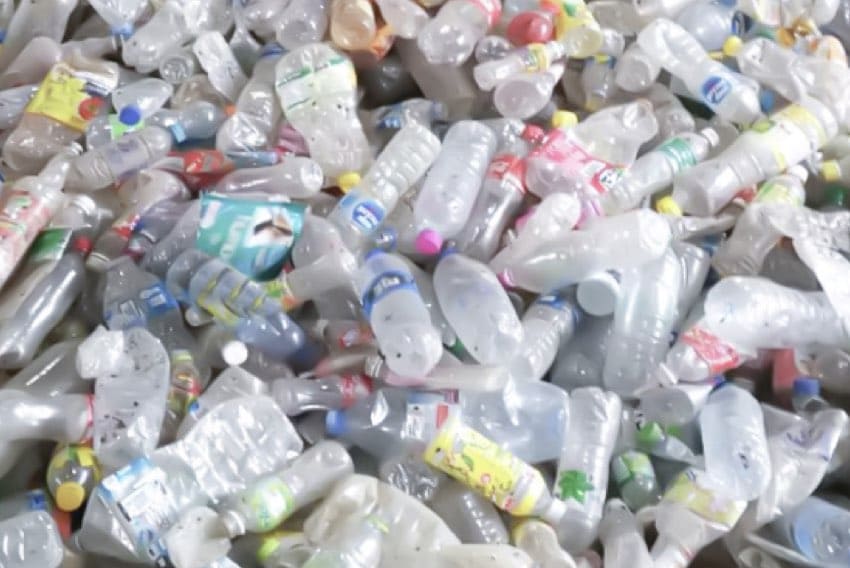Regional Webinar: Plastic Waste Recycling Standards
The worldwide production and consumption of plastics has rapidly increased over the last decades. At the same time, unmanaged plastic waste contributes more and more to the pollution of air, soils, waterways and oceans, if bottles and other plastics end up in the environment. Plastic waste that cannot be avoided should be collected, sorted and recycled. But which technical, environmental and social standards for plastic recycling need to be considered? What does “recyclability” even mean? And how can a good quality of recycled materials be achieved, and their market demand increased?
The regional webinar organised by ‘Rethinking Plastics’ on 10 September 2020 discussed answers to these questions and shared insights from policy and practice with a focus on the European Union, the Philippines and Vietnam.
“Questions around recycling and recyclability were on the table before the COVID-19 crisis but the crisis had also an impact for the recycling industry. For instance, the low price of oil has decreased the prices of virgin plastics and made it more difficult for recycled plastics to be competitive on the market. With this webinar, we hope to contribute to the ongoing discussion, to foster joint learning and to create a community of exchange on these topics”,
introduced Ms Maria-Chiara Femiano, Programme Manager at the Foreign Policy Instruments/ Regional Team for Asia & Pacific, Delegation of the European Union to Thailand.
“The European Green Deal provides a roadmap with concrete actions to promote the efficient use of resources by moving towards a circular economy. It helps to restore biodiversity and decrease pollution and aims to also create jobs, increase competitiveness and boost innovation”, added Ms Katarina GRGAS-BRUS, International Relations Officer for Southeast Asia at the European Commission’s Directorate-General for the Environment.
Ms Likha Malai C. Alcantara of the Solid Waste Management Division, Department of Environment and Natural Resources (DENR) - Environmental Management Bureau (EMB), Philippines shed light on current processes in the Philippines: “There is a growing concern on marine litter. So in the Philippines, we want to organise all the activities and reorganise the way we see recycling with the National Plan of Action on Marine Litter. Its development is a multi-stakeholder process.”
Ms Tran Thu Hang from the Sustainable Consumption and Production Office, Energy Efficiency and Sustainable Development Department of the Vietnamese Ministry of Industry and Trade (MOIT) also outlined the way forward in Vietnam: “We will pay more attention to sustainable design of plastic products. At the same time, we promote resource efficiency and cleaner production. We will strengthen the application of circular economy, connecting markets and environmental technologies.”
After policy insights provided in the first part of the webinar, practical examples and needs were shared by Ms. Sabine Bartnik of the cyclos GmbH in Germay, Mr. Hoang Duc Vuong from the Vietnam Plastic Association and Mr. Crispian Lao, Representative from the Recycling Industry in the National Solid Waste Management Commission in the Philippines.
Overall, 10 key messages for enchancing plastic recycling can be noted from the webinar:
1. Plastic waste prevention and recycling are a cross-cutting issue between different policy realms and ministries as well as between the public and private sector.
2. Extended Producer Responsibility (EPR) systems can contribute to enhancing cooperation along plastic packaging value chains and generate additional financial resources.
3. Market demand for recycled plastics needs to be increased.
4. The quality of recycled materials needs to be ensured.
5. Certification schemes for plastic recycling facilities can increase trust along the value chain.
6. Recycling targets are an important policy instrument. Their definition, monitoring and regular update are however crucial.
7. High-quality recycling relies on good collection and segregation at source by households and businesses.
8. Enhancing plastic recycling value chains requires the integration of informal workers and structures.
9. The international trade of plastic waste attracts high public attention.
10. International cooperation increases.
The documentation summarizes the presentations and inputs given during the webinar.



